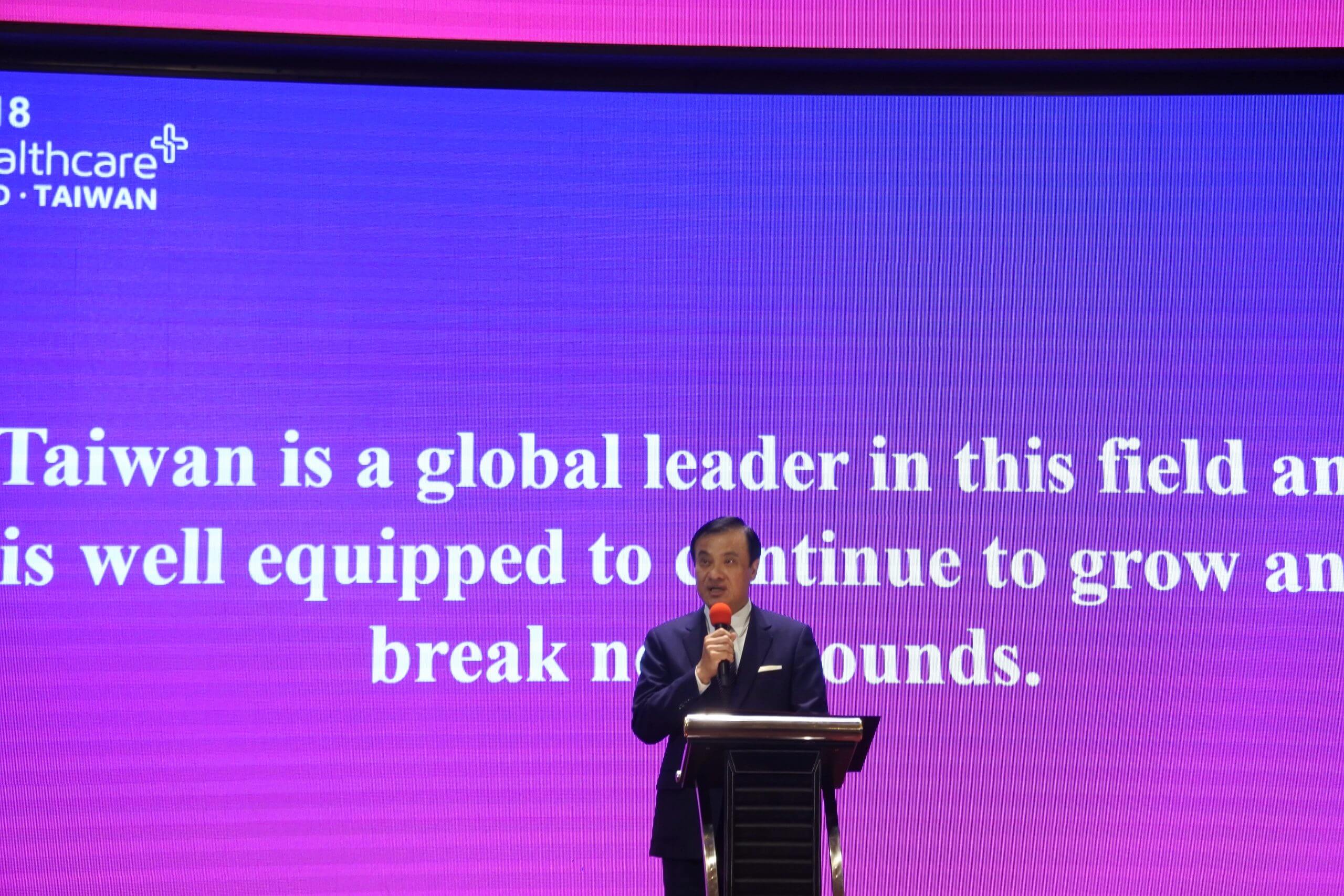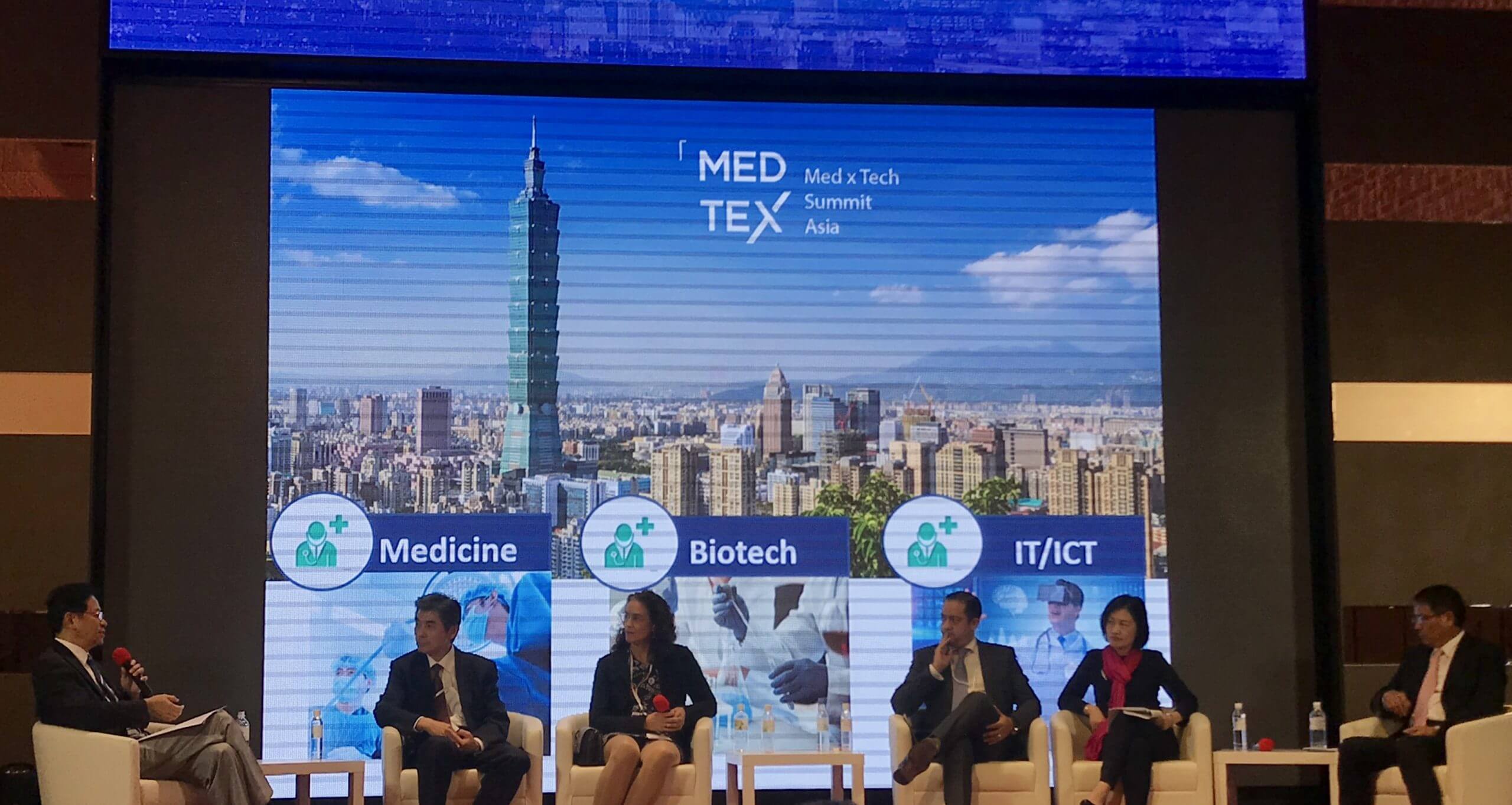Med x Tech Summit Asia 2018: Day 1 Recap
By Joanne Shih
Med x Tech Summit Asia (MEDTEX) opened on November 30 together with the Taiwan Healthcare+ Expo 2018 in Taipei, Taiwan.
Su, Jia-Chyuan, President of the Legislative Yuan, remarked at the opening of MEDTEX summit. Su announced the signage of new MOUs to prompt in-depth collaborations with international partners. Six MOUs were signed by the Institute of Biotechnology and Medicine Industry (IBMI) with associations from Thailand, Australia, Malaysia, and Korea, including Federation of Thai Industries (FTI), Thai Medical informatics Association, Private Hospital Association Thailand, Chungbuk Leader’s Club, Medical Software Industry Association of Australia, and Malaysia Association for Cell Therapy. Forums discussing from immune-oncology, to next generation bio-therapeutics, and to digital healthcare were carried in the following programs.

Novel Bio-therapeutics in Practice
In the session of Immuno-Oncology, Next-generation Bio-therapeutics, and Gene Editing, Wise Young, Chief Science and Medical Advisor at StemCyte, talked about stem cell transplantation in spinal cord injured patients and advocated “666 Walking Program” for treating such patients. Special Program Director at Takeda Pharmaceutical, Seigo Izumo gave an overview of how Takeda uses iPSC in multiple dimensions, including cell therapy, drug discovery, and gene editing therapy. Tony J. Wang from the Columbia University Medical Center then talked about chemo-radiation which combines immunotherapy and radiation to treat brain tumor with outstanding results. David DiGiusto, CTO at Semma Therapeutics, brought up the importance of minimizing risks of cell therapy and gene editing clinical trials, and illustrated a review and assessment process that’s been practiced in Semma Therapeutics.
CEOs Perspectives
At the CEO Forum, leaders from pharmaceutical and IT companies, including Merck, Teva, Hitachi, NVIDIA, and Qisda talked about the future of healthcare industry and intersectional possibilities. Many of them emphasized collaboration and partnership are the key to build a thriving future. To stay innovative is also crucial to pharmaceutical and healthcare industry. Birgit Reitmaier, Head of Access to Innovation APAC at Merck, said, “Diversity is the key to constantly stay innovative. Internally we keep an open eye, but externally keep scouting to outer world.”
The CEO of Mammoth Bioscience, Trevor Martin had a fireside conversation with Chris Shu, the Managing Partner at Pacific 8 Ventures discussing CRISPR from its basic principle, to its advantages, and to the current ethical controversy in China. Trevor Martin pointed out that CRISPR has an great impact on human society, so mankind should be more transparency and fully communicate when dealing with this powerful technology.

Delivering Personalized Healthcare through Precision Medicine
IBM Watson Health, Harvard Medical School, and Vancouver Prostate Centre also joined this meeting to talk about personalized healthcare from different dimensions. Lenny Chen from IBM Watson Health, said that their goal is to create collaboration between human and machine instead of trying to replace human with machine. Alireza Haghighi, Clinician Scientists at Harvard Medical School, called that, “The DNA data we have is too white” to point out currently the genome data we have is mostly from western population which is not enough to develop a comprehensive medical solution. Colin Collins from Vancouver Prostate Centre, the Director of Laboratory for Advanced Genome Analysis, addressed precision oncology in treating prostate cancer. Collins said, “The key to precision oncology is to understand how to treat patient with different drugs based on genomic profile of patients’ prostate cancer. We now are not doing this very well, but we can do it. We just need to think up a sustainable way toward precision medicine.”
©www.geneonline.com All rights reserved. Collaborate with us: service@geneonlineasia.com









